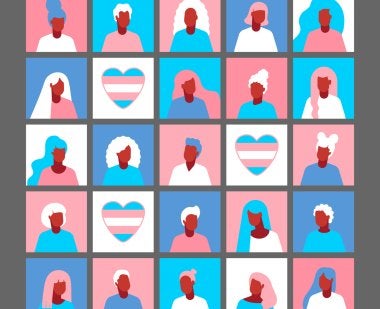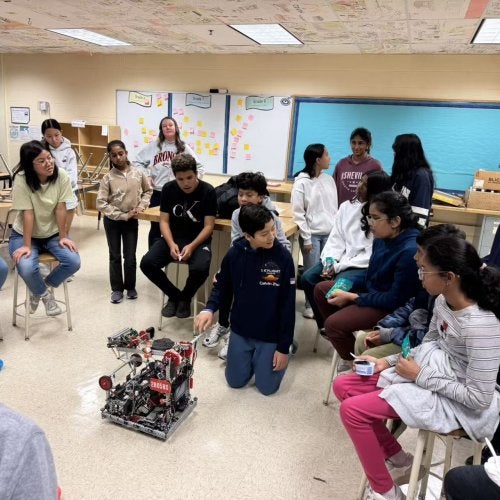
Trans young adults of color use creativity to define their identities, build community, survive discrimination, and cultivate joy while imagining and pursuing a better world, according to new research by a team made up of University of Maryland students.
The study, which was recently published in the Journal of Counseling Psychology, highlights the experiences of 15 trans young adults of color ages 18-29 from across the United States. The team interviewed the participants to understand their strengths, struggles and experiences navigating harm from racism and transphobia.
“They’re able to hold so many tremendous strengths, create experiences of joy and create spaces where they’re able to exist authentically and genuinely, notwithstanding the systems that seek to erase their communities,” said M Pease ’22, M.S. ’24, a UMD doctoral student in counseling psychology, who led the study as an undergraduate psychology major at UMD. Pease designed the study with the hope of giving voice to trans people of color, who are particularly marginalized in psychology research.
The researchers collected much of the data virtually in summer 2020 at the height of the COVID-19 pandemic. The six-member team included several other researchers who were undergraduate students at UMD during data collection and analysis: biological sciences and psychology major Naru Kang ’23, English major Garden Oluwakemi ’22, and psychology majors Lily Jin ’22 and Benjamin Bradshaw ’20. Thomas P. Le M.S. ’19, Ph.D. ’23, a doctoral student in counseling psychology at UMD at the time of the research, served as the team’s advisor. Le is now an assistant professor of psychology and affiliate faculty member in Asian American studies at Bryn Mawr College.
Young trans people of color engage creatively as they understand and define themselves outside of rigid societal norms related to gender and race, the researchers noted. They use creativity to navigate discriminatory systems, complicated family dynamics and perceived conflicts between their gender and racial identities. These young adults have a unique perspective, the researchers observed, having come of age in a generation that is more open to expansive ideas about gender while also facing a recent rise in antitrans rhetoric, policy and violence.
“Imagine what we could do, the types of things we could create and experience, if so much of our energy and creativity were not dedicated to justifying our humanity,” said Pease.
In the study, the young adults shared experiences about how racism and transphobia affect their physical health and emotional well-being. They talked about times when they needed to compromise their authentic selves to survive discrimination, as well as stories of healing and resilience. The participants discussed the strengths that have emerged from their experiences of discrimination, such as a strong sense of compassion for other marginalized groups. One participant described this heightened sense of empathy as a “superpower.” The participants also talked about finding communities where they feel supported and imagining a world where they could always feel accepted as their full selves.
Pease hopes the study helps counselors and therapists “recognize and honor the different nuances in the experiences of trans folks of color.” They hope the study encourages policymakers to enact laws that respect the rights and dignity of trans people of color and also inspires researchers to focus on the community’s strengths and joys, not just its struggles.
“Historically, psychology as a field has often harmed members of my community. Many researchers across scientific disciplines in this current era are grappling with that history,” Pease said. “Being in a position where I can do this work in a way that is empowering to communities, where these participants have trusted me with their deeply personal lived experiences, has been really special.”
Image by iStock


